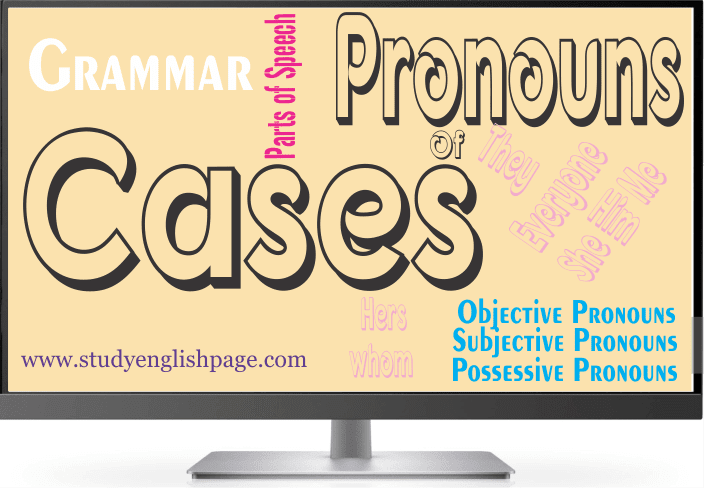What are Cases of Pronouns
Pronouns are words that take the places of nouns to avoid repetition. As we know that a noun can be used as a subject or as an object. Similarly, when we use a pronoun instead of a noun, at first, we see the function of the noun. If the noun functions as a subject, we also use the subjective form of the pronoun. If the noun functions as an object, we use the objective form of the pronoun. If the noun shows possession, then the possessive form of the pronoun is used.
Definition
The case is the form a pronoun takes depending on its function in a sentence. There are three cases of pronouns in English. They are subjective, objective, and possessive.

Cases of Pronouns
Subjective Case
When a pronoun is a subject in a sentence, it is called the subjective case of pronoun.
- I have distributed all the chocolates.
- She answered all the questions correctly.
- They will try their best to respond to you soon.
- Everyone has attempted the paper, but Ali got 1st position.
- I know the doctor who treated my father.
Objective Case
When a pronoun is an object in a sentence, it is called the objective case of pronoun.- He took her to the hospital.
- I bought him an expensive gift.
- We invited everyone to the party.
- We want her to be a dentist.
- I invited the man whom you called yesterday.
Possessive Case
When a pronoun shows ownership or possession, it is called the possessive case of pronouns.
- That is mine.
- The house in front of us is theirs.
- I know it is hers.
- Take this. It is yours.
- I appreciated the boy whose paintings were shown in the exhibition.
